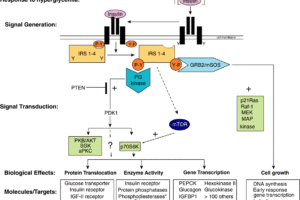Clinical Biochemistry: Understanding Blood Tests and Enzyme Markers in Disease
Discover the importance of clinical biochemistry in diagnosing diseases through blood tests and enzyme markers like AST, ALT, CK, and others.
Introduction
Clinical biochemistry plays a pivotal role in modern medicine.
By analyzing blood and body fluids, doctors can diagnose, monitor, and manage a variety of diseases. Blood tests and enzyme markers provide valuable insights into organ function, metabolic disorders, and even hidden pathologies.
In this blog, we explore key concepts in clinical biochemistry, focusing on blood tests and enzyme markers.
What is Clinical Biochemistry?
Clinical biochemistry is a branch of laboratory medicine that studies the chemical and biochemical mechanisms of the human body in relation to disease.
It involves tests on blood, plasma, serum, urine, and other body fluids to detect abnormalities.
Common Blood Tests in Clinical Biochemistry
1. Complete Blood Count (CBC)
-
Measures red blood cells (RBCs), white blood cells (WBCs), hemoglobin, hematocrit, and platelets.
-
Helps diagnose anemia, infections, and blood cancers.
2. Blood Glucose Test
-
Measures blood sugar levels.
-
Important for diagnosing diabetes mellitus.
3. Lipid Profile
-
Measures cholesterol, HDL, LDL, and triglycerides.
-
Assesses risk for cardiovascular diseases.
4. Liver Function Tests (LFTs)
-
Measures enzymes like AST, ALT, ALP, and bilirubin.
-
Evaluates liver health.
5. Renal Function Tests (RFTs)
-
Measures blood urea nitrogen (BUN), creatinine, and electrolytes.
-
Checks kidney function.
6. Thyroid Function Tests
-
Measures TSH, T3, and T4 levels.
-
Diagnoses hypothyroidism or hyperthyroidism.
Enzyme Markers in Disease
Enzymes act as vital indicators of tissue injury.
Specific enzymes leak into the bloodstream when organs are damaged, serving as biomarkers for disease.
Key Enzyme Markers:
| Enzyme | Source | Clinical Significance |
|---|---|---|
| AST (Aspartate Aminotransferase) | Liver, Heart, Skeletal muscle | Elevated in liver disease, myocardial infarction |
| ALT (Alanine Aminotransferase) | Liver | Specific marker for liver damage |
| ALP (Alkaline Phosphatase) | Liver, Bone | High in liver obstruction, bone diseases |
| CK (Creatine Kinase) | Heart, Skeletal muscle | Elevated in myocardial infarction, muscle diseases |
| LDH (Lactate Dehydrogenase) | Heart, Liver, RBCs | Raised in tissue damage and hemolysis |
| Amylase and Lipase | Pancreas | Elevated in acute pancreatitis |
Importance of Enzyme Markers
-
Early Diagnosis: Enzymes like CK-MB and Troponin are crucial for early detection of heart attacks.
-
Monitoring Disease Progression: Liver enzymes (AST, ALT) help track chronic liver diseases.
-
Treatment Evaluation: Falling enzyme levels post-treatment indicate recovery.
-
Prognosis: Persistent high enzyme levels may signal worsening conditions.
Case Examples
-
Case 1:
A sudden rise in CK-MB and Troponin levels indicates myocardial infarction even before ECG changes appear. -
Case 2:
High ALT and AST with a higher ALT/AST ratio suggests viral hepatitis. -
Case 3:
Increased ALP with normal GGT points toward bone disease like Paget’s disease.
Conclusion
Clinical biochemistry provides essential diagnostic information that is often lifesaving.
Blood tests and enzyme markers help doctors identify diseases early, guide treatment, and monitor recovery. A strong understanding of clinical biochemistry is vital for both healthcare professionals and students of medicine and allied sciences.

